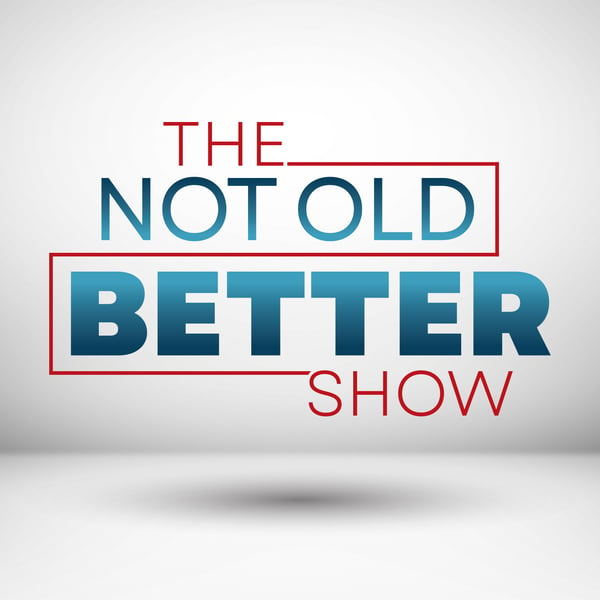The 88-Second Massacre: Aran Shetterly on Greensboro’s Buried Truth
The Not Old - Better Show
Paul Vogelzang
5 • 1.8K Ratings
🗓️ 27 February 2025
⏱️ 24 minutes
🧾️ Download transcript
Summary
INTRODUCTION:
On the morning of November 3, 1979, in a quiet neighborhood of Greensboro, North Carolina, a crowd gathered for a march—activists, mill workers, and local citizens standing together against the Ku Klux Klan. The press was there, cameras rolling, ready to document a demonstration for justice. But what unfolded in just 88 seconds was something no one could have imagined. Shots rang out. Five people lay dead. The killers—members of the Klan and American Nazis—walked away without consequence.
And just like that, an act of political terror carried out in broad daylight became a footnote in American history. No justice. No reckoning. No headlines in history books.
As part of our Black Heritage Month, author and historian Aran Shetterly is here today to change that. His new book, available on Apple Books, Morningside: The 1979 Greensboro Massacre and the Struggle for an American City’s Soul, is a gripping, meticulously researched account of the Greensboro Massacre—one of the most brazen acts of racial and political violence in modern America, and one that eerily mirrors the polarization, extremism, and law enforcement failures we continue to see today.
Why was this atrocity buried in the past? What does it reveal about justice—then and now? And what lessons can we learn as we approach the 45th anniversary of this chilling event?
Aran Shetterly spent years uncovering the truths that many wanted to stay hidden. He spoke with activists, police officers, informants, and eyewitnesses—some who still refuse to acknowledge what happened that day. Today, he joins us to share what he found and why Morningside is more than just history—it’s a warning.
This is The Not Old Better Show, and I’m Paul Vogelzang. Stay with us.
My thanks to historian Aran Shetterly and his new book, Morningside: The 1979 Greensboro Massacre and the Struggle for an American City’s Soul. My thanks to Sam & Miranda Heninger for keeping us going. My thanks to you, our wonderful audience here on radio and podcast. Be well, be safe, and Let’s Talk About Better™ The Not Old Better Show on radio and podcast. Thanks and we’ll see you next time.
Transcript
Click on a timestamp to play from that location
| 0:00.0 | Welcome to the Not Old Better Show, the show covering all things health, wellness, culture, and more. |
| 0:06.4 | The show for all of us who aren't old, were better. |
| 0:09.3 | Each week we'll interview superstars, experts, and ordinary people, doing extraordinary things, |
| 0:15.4 | all related to this wonderful experience of getting better, not older. |
| 0:19.7 | Now here's your host, the award-winning Paul Vogelzang. |
| 0:24.6 | Welcome to the Not Old Better Show on radio and podcast. |
| 0:28.6 | I'm Paul Vogelsang. |
| 0:29.6 | On the morning of November 3rd, 1979 in a quiet neighborhood of Greensboro, North Carolina, |
| 0:35.6 | a crowd gathered for a march, activists, mill |
| 0:38.8 | workers, and local citizens standing together against the Ku Klux Klan. The press was there, |
| 0:45.1 | cameras rolling, ready to document a demonstration for justice, but what unfolded in just 88 |
| 0:49.8 | seconds was something no one could have imagined. Shots rang out, five people lay dead. The killers, |
| 0:56.2 | members of the clan, and the American Nazi party walked away without consequence. And just like that, |
| 1:02.4 | an act of political terror carried out in broad daylight became a footnote in American history. |
| 1:08.6 | No justice, no reckoning, no headlines in history books. |
| 1:12.3 | Our guest today is author and historian Aaron Shetterly. He's here to talk about this incident |
| 1:18.7 | and to change the awareness. His new book, Morningside, The 1979 Greensboro Massacre and |
| 1:25.1 | The Struggle for an American City's soul, is a gripping, meticulously researched account of the Greensboro Massacre and the struggle for an American city's soul is a gripping, meticulously |
| 1:29.4 | researched account of the Greensboro Massacre, one of the most brazen acts of racial and political |
| 1:35.0 | violence in modern America, and one that eerily mirrors the polarization extremism and law |
| 1:42.0 | enforcement failures we continue to see today, especially in the U.S. |
| 1:47.2 | South. Why was this atrocity buried in the past? What does it reveal about justice today? |
... |
Please login to see the full transcript.
Disclaimer: The podcast and artwork embedded on this page are from Paul Vogelzang, and are the property of its owner and not affiliated with or endorsed by Tapesearch.
Generated transcripts are the property of Paul Vogelzang and are distributed freely under the Fair Use doctrine. Transcripts generated by Tapesearch are not guaranteed to be accurate.
Copyright © Tapesearch 2025.

